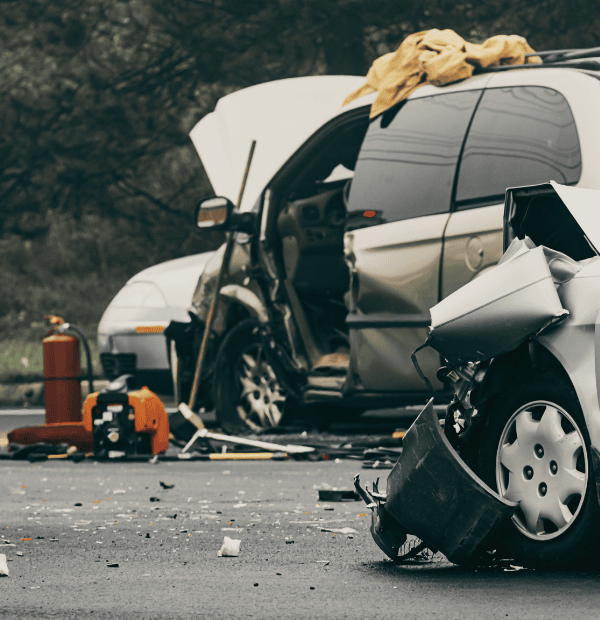
Tested Positive for Drugs While Driving? Here's What You Need to Know
In New South Wales, driving with drugs such as THC (marijuana), MDMA (ecstasy), amphetamines (ice), or cocaine in your system is illegal, regardless of whether you appear to be impaired. With random roadside drug tests and strict penalties, being charged with drug driving can have lasting consequences.
Key points:
- Presence, not impairment, is what matters. The prosecution only needs to prove drugs were in your system
- A positive roadside test is followed by a lab analysis before penalties are issued
- Police can issue on-the-spot fines and a three-month licence suspension for a first offence
If you’ve been charged, Brightstone Defence Criminal Lawyers can provide expert guidance and fight to achieve the best possible outcome for your case.
Driving Under the Influence (DUI) is a serious criminal offence in New South Wales, targeting drivers who operate a motor vehicle while affected by alcohol, illegal drugs, or prescription medication. Unlike offences based on a specific blood alcohol concentration (BAC), DUI is based on observable impairment, such as erratic driving, slurred speech, or poor coordination.
In NSW, DUI is an offence under the Road Transport Act 2013 (NSW). Police may charge a person with DUI even if no BAC reading or drug test is taken, or if the person refuses to provide a sample.
Drugged driving
Drugged driving is a specific type of offence under Section 111 of the Road Transport Act 2013 (NSW). It occurs when a motor vehicle is driven while a prescribed illicit drug is present in your oral fluid, blood or urine. Commonly tested substances include
- THC (cannabis)
- MDMA (ecstasy)
- Methamphetamines (ice)
- Cocaine
Unlike DUI charges, there is no need to prove the driver was affected or impaired as only the presence of the drug is sufficient for a charge.
How is DUI Different From PCA?
Many people confuse DUI with PCA (Prescribed Concentration of Alcohol) offences. The key difference is:
- PCA charges are based on measurable blood alcohol levels from breath, blood, or saliva tests
- DUI charges rely on observable signs that a person is under the influence of a substance, regardless of test results
A person can be charged with DUI for being under the influence of:
- Alcohol
- Illicit drugs (e.g., cannabis, cocaine, MDMA)
- Prescription medication (e.g., sleeping tablets, opioids)
- Over-the-counter drugs causing drowsiness or affecting coordination
When Can Police Charge You With DUI?
Police may lay DUI charges if they believe, based on their observations, that a driver is affected by drugs or alcohol to such an extent that they are incapable of proper control of a vehicle.
Common indicators include:
- Smell of alcohol
- Slurred speech
- Bloodshot or glazed eyes
- Poor balance or unsteady walking
- Confused or aggressive behaviour
- Dangerous or erratic driving
Police may also request a sobriety assessment, drug wipe test, or blood/urine sample. Refusing to comply can result in additional charges.
检方必须证明的要素
To secure a conviction, the prosecution must prove:
- You drove (or attempted to drive) a motor vehicle
- A prescribed illicit drug was present in your system at the time
- The presence was confirmed through laboratory analysis following a roadside test
可能的防御
While DUI is a serious charge, legal defence may be available depending on the circumstances:
- Insufficient evidence: The prosecution must prove beyond reasonable doubt that the driver was intoxicated and unable to control the vehicle properly
- Unlawful police conduct: If police acted unlawfully in stopping or detaining the driver, evidence may be excluded
- Involuntary intoxication: In rare cases, if the driver unknowingly consumed a drug or substance, a defence may apply
- Medical condition: Symptoms mimicking intoxication may stem from health issues (e.g., neurological conditions, diabetes)
An experienced traffic or criminal lawyer can review the case and advise whether it is better to defend the charge or plead guilty.
潜在的处罚
Penalties for DUI offences depend on the driver's criminal history and whether it is a first or repeat offence. DUI is treated seriously due to the heightened risk it poses to public safety.
For a first offence:
- Up to 18 months imprisonment
- Fine of up to $3,300
- Minimum disqualification of 6 months (longer for serious cases)
- Potential for Alcohol Interlock Program
For a second or subsequent offence:
- Up to 2 years imprisonment
- Fines up to $5,500
- Licence disqualification of at least 9 months
- Mandatory interlock device installation
The court may also record a criminal conviction, which can impact future employment, insurance, and overseas travel.

法律程序
& 选项
After a roadside drug test, your sample is sent for laboratory analysis. If the result is positive, you may receive a court attendance notice or penalty notice. You can choose to accept the penalty or contest the charge in court.
DUI charges in NSW carry serious legal, personal, and financial consequences. Courts treat these offences harshly because of the public safety risks involved. If you are facing a DUI charge, it is important to get legal advice early to understand your options and possible outcomes.
恳求
无罪
If you plead not guilty, we will thoroughly prepare your defence strategy. This may involve:
- Challenging the reliability of the drug test
- Arguing issues of timing or procedure
- Raising a genuine mistake of fact or questioning whether you were driving
Our experienced team will review all evidence, dispute improper police conduct or testing, and defend your rights every step of the way.
恳求
有罪
If you plead guilty, the matter proceeds to sentencing. Entering an early guilty plea may:
- Reduce legal costs and penalties
- Show remorse, which can lead to leniency
- Increase your chances of receiving a Section 10 Dismissal or Conditional Release Order (CRO), avoiding a criminal record
Before pleading guilty, consult Brightstone Defence Criminal Lawyers to fully understand the impact and explore your chances for a non-conviction outcome.
PCA罪行基于您的BAC水平超过法定限制,而DUI罪行基于观察到的损害或行为。它可以适用于酒精、非法毒品或处方药。在某些情况下,一个人可能同时被指控两项。
DUI基于警察的观察和证据,例如:
- 说话含糊或走路不稳
- 血液或毒品测试
- 危险驾驶
您的个人感知是不够的;法院依赖客观证据。
拒绝测试是一项刑事罪行,处罚可能等于或超过DUI处罚。您可能面临:
- 罚款
- 吊销驾照
- 监禁
- 可能。警方可能:
- 当场吊销您的驾照
- 在48小时内发出吊销通知
法院还可能处以进一步的取消资格。
第10条或CRO允许法院:
- 认定您有罪,但
- 不记录定罪
这避免了犯罪记录和吊销驾照,但不是保证的。
- 对DUI的刑事定罪可以无限期地保留在您的记录中,影响就业、保险和旅行。非定罪结果,如第10条或CRO,可以防止这种情况。
- 在处方药的影响下驾驶是一项罪行,如果它影响您控制车辆的能力。始终检查药物上的警告,如果不确定,请咨询医生。
- 尽快寻求法律建议。经验丰富的律师可以审查您的案件,就您的选项提供建议,并帮助最大限度地减少潜在处罚。
面临DUI指控可能产生严重的法律、个人和财务后果。尽早寻求专家法律建议至关重要。Brightstone Defence Criminal Lawyers提供专业指导,彻底审查您的案件,并制定旨在实现最佳结果的量身定制辩护策略。立即联系我们以保护您的权利,了解您的选项,并在整个法律过程中获得强有力的代理。
PCA罪行基于您的BAC水平超过法定限制,而DUI罪行基于观察到的损害或行为。它可以适用于酒精、非法毒品或处方药。在某些情况下,一个人可能同时被指控两项。
DUI基于警察的观察和证据,例如:
- 说话含糊或走路不稳
- 血液或毒品测试
- 危险驾驶
您的个人感知是不够的;法院依赖客观证据。
拒绝测试是一项刑事罪行,处罚可能等于或超过DUI处罚。您可能面临:
- 罚款
- 吊销驾照
- 监禁
- 可能。警方可能:
- 当场吊销您的驾照
- 在48小时内发出吊销通知
法院还可能处以进一步的取消资格。
第10条或CRO允许法院:
- 认定您有罪,但
- 不记录定罪
这避免了犯罪记录和吊销驾照,但不是保证的。
- 对DUI的刑事定罪可以无限期地保留在您的记录中,影响就业、保险和旅行。非定罪结果,如第10条或CRO,可以防止这种情况。
- 在处方药的影响下驾驶是一项罪行,如果它影响您控制车辆的能力。始终检查药物上的警告,如果不确定,请咨询医生。
- 尽快寻求法律建议。经验丰富的律师可以审查您的案件,就您的选项提供建议,并帮助最大限度地减少潜在处罚。
面临DUI指控可能产生严重的法律、个人和财务后果。尽早寻求专家法律建议至关重要。Brightstone Defence Criminal Lawyers提供专业指导,彻底审查您的案件,并制定旨在实现最佳结果的量身定制辩护策略。立即联系我们以保护您的权利,了解您的选项,并在整个法律过程中获得强有力的代理。
成功案例和文章
Brightstone Defence全年提供有针对性的刑事辩护服务,并建立了良好的成功记录。
认识我们的律师
世界一流
代表
100 多条 5 星评价
为每个案例量身定制的个性化法律策略
刑事辩护法领域公认的领导者
免费初步咨询和案例评估
在高风险和复杂的案件中证明是成功的
即时获取预估报价
和免费咨询会议
面临刑事指控?我们经验丰富的辩护律师随时为您提供帮助。立即预订免费咨询,讨论您的案例并了解您的选择。






